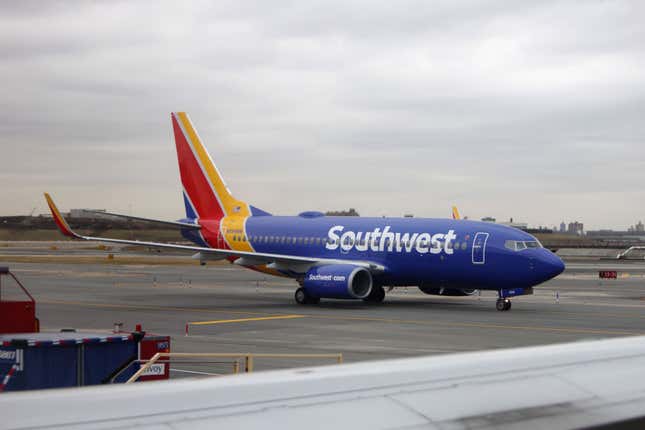
In This Story
A recession isn’t coming after all — it’s already here, according to at least one airline CEO.
Southwest Airlines (LUV+1.96%) CEO Bob Jordan told Bloomberg that demand has cratered in recent months, with domestic leisure travel dropping more than he’s ever seen besides the Covid-19 pandemic. The executive expects Southwest’s second-quarter revenue to fall by six percentage points after it declined by three points in the first quarter.
“I don’t care if you call it a recession or not, in this industry that’s a recession,” the CEO told Bloomberg.
Southwest is more reliant on domestic leisure travel than other airlines, like Delta (DAL-1.62%), that get a significant portion of their revenue from business travel. Because of this, Southwest is more vulnerable to changes in consumers’ willingness to shell out money for travel.
“When consumers are uncertain, they pull back,” Jordan said. “Consumers can immediately stop spending.”
Southwest reported a 10.9% year-over-year increase in revenue as part of its first-quarter earnings Wednesday, but rising labor and maintenance costs — plus booking softness — weighed on results. The Dallas-based company pulled both its 2025 and 2026 guidance after reporting an adjusted Q1 loss of $0.13 per share. Southwest is now slashing Q2 capacity and slowing hiring, citing “ongoing uncertainty” tied to the U.S.-China trade war.
“We were highly impacted on the demand side by the tariffs and then just the consumer confidence erosion,” Jordan told Yahoo! Finance.
Southwest shares were down 0.6% early Friday after adding 3.6% on Thursday.
Like Southwest, other airlines, including American (AAL+0.15%), Alaska (ALK+0.78%), and Delta, have pulled their revenue guidance in recent days. “There’s no way to predict exactly where demand is going,” American CEO Robert Isom told CNBC (CMCSA+0.03%).
Delta reported a $240 million profit and 6% year-over-year revenue growth. Premium and corporate demand held up — but broader growth, Delta warned, has stalled under the weight of tariffs and economic volatility.
CEO Ed Bastian said the airline is doubling down on “cost discipline and network optimization” and will “adjust capacity as needed” in response to shifting conditions.
—Catherine Baab contributed to this article.